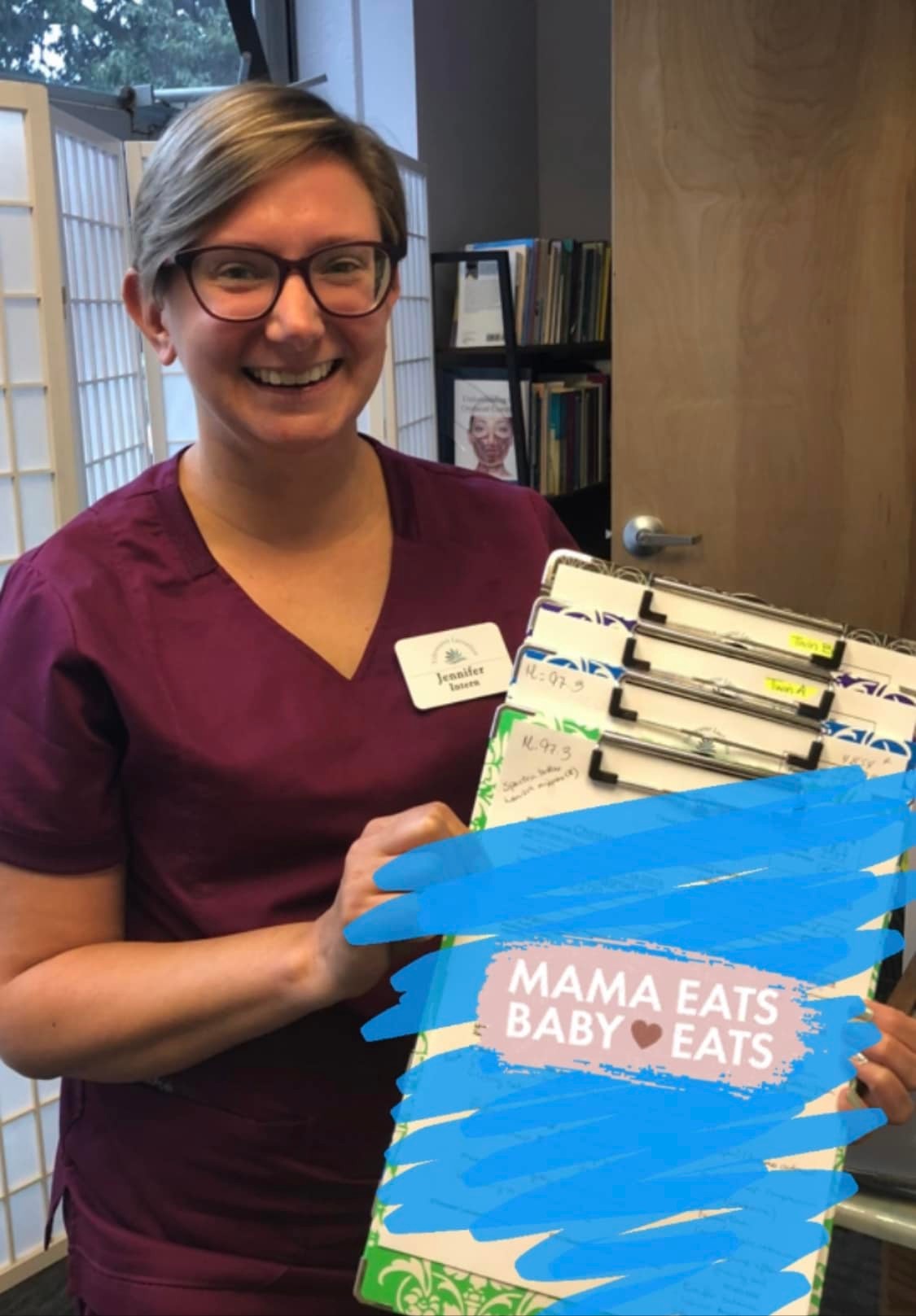We’re excited to introduce you to the always interesting and insightful Jennifer Rothrock. We hope you’ll enjoy our conversation with Jennifer below.
Jennifer, thanks for joining us, excited to have you contributing your stories and insights. Can you share a story with us from back when you were an intern or apprentice? Maybe it’s a story that illustrates an important lesson you learned or maybe it’s a just a story that makes you laugh (or cry)?
Finding a mentor (we called them preceptors) was difficult! I struggled to find a preceptor but was fortunate enough to intern with two practices while I was working on my Masters and following Pathway 2 to become an International Board Certified Lactation Consultant (IBCLC). With both practices we had visits with mothers whose infants had a poor latch and minimal transfer, mothers struggling to maintain a breastmilk supply, or those battling Postpartum Depression/Anxiety. The concerns for breastfeeding parents can be extensive, but one visit in particular sticks with me, it was a family with twins. Every family I have been fortunate enough to work with provided a unique learning experience, but multiples isn’t a frequent occurrence in a private practice. Speaking with the parents and understanding their concerns with breastfeeding multiples provided an amazing learning experience that varied from the classroom learning. The ability to apply what you are learning is something not many people get to experience. A textbook can list the various options parents have when feeding multiples, but when providing hands on counseling, it is not always that straight forward. Often the parents have tried a variety of techniques and as an IBCLC you need to be an active listener, taking notes on what has or has not worked for them, then you can collaborate with the family to create a care plan that meets their needs and goals.


As always, we appreciate you sharing your insights and we’ve got a few more questions for you, but before we get to all of that can you take a minute to introduce yourself and give our readers some of your back background and context?
Interesting fact about me, I started my career as a Web Designer. I graduated from University of North Carolina in Greensboro with a BA in Graphic Design. After spending over 15 years in the field but knew I needed to make a change. Work felt just like that – work. Struggling to find joy in my career, I kept coming back to one thing I loved about being a parent which was the support within my community, The community support I discovered after having my son in 2014 planted the seed that would soon become my new career of an IBCLC. Fast forward to 2020/2021, I went back to school for my Masters in Human Lactation Studies and followed Pathway 2 to achieve my IBCLC certification.
As an IBCLC I am able to provide not only lactation support for new parents, but also bottle feeding, combo feeding, and introduction to solids for babies. Additionally, I provide prenatal lactation care through educational consults to help parents to better understand infant cues, frequency of feedings, sleep patterns, wake windows, and what to expect with breast development and changes during the first couple of weeks while breastfeeding. I also provide support for families exclusively pumping. It’s hard work!
I became an IBCLC to support families and meet them where they are with their infant feeding goals. I find that to provide the best care it is important to know listening is just as beneficial as a physical exam. Listening helps me understand the unique struggles each family encounters as each have different needs and goals. A common phrase I heard when someone is wanting to know all of the information is “spill the tea”. I like to think of a lactation consultation as an opportunity for families to “spill the milk” on both their strengths and concerns.

Let’s talk about resilience next – do you have a story you can share with us?
One element of my journey in which I struggled the most was obtaining a preceptor to meet the minimum 300 hours. I’ve mentioned Pathway 2 a few times, but to provide some additional information – when becoming an IBCLC there are 3 pathways one can take in order to sit for the examination. Within Pathway 2, we are required to complete a comprehensive lactation academic program. These are typically university or college-based, include both didactic and clinical components, and require health sciences education. The program must include 95 hours of lactation specific education, and we must achieve a minimum of 300 hours of directly supervised lactation specific clinical practice with a currently certified IBCLC in good standing.
Finding a preceptor to assist was a struggle! I haven’t counted, but I believe I sent out over 50 emails and phone calls to regional IBCLCs asking if they would supervise my internship hours. All said no. And it was for various reasons: they couldn’t take on another intern, taking the summer and/or fall off, didn’t have a big enough practice in which they felt it would be beneficial, and the list goes on. At this point I felt like giving up. I was questioning if I made the right choice in changing my career. After sitting down with my husband and talking out what I’ve done, needed to complete, and any hurdles, I was ready to keep trying. It was in this discussion I remembered why I wanted this change, why I wanted to help families. I kept going, I kept asking, kept getting “no”. The deadline was looming for preceptor paperwork for my educational program, but I was able to secure 2 practices in which to intern. I was able to have different perspectives and educational opportunities with both practices. Perseverance pays off!

Putting training and knowledge aside, what else do you think really matters in terms of succeeding in your field?
Without a doubt, collaboration. I feel having mentors and peers to communicate with is important in this field of work. As a lactation consultant I have read about many things families may need assistance with, but it may be a while before I experience it in person since a majority of consults pertain to a better latch. Having a mentor and peers to collaborate with is important as it expands your pool of knowledge.
Breastfeeding is more than just the breast and infant, the collaboration doesn’t stop with mentors and peers. An infant’s ability to breastfeed is influenced by the form and function of muscles such as the tongue. For example if the muscles of the tongue are restricted, then it can not move around as it should. To figure out the root cause of why the muscles are tight, it is important to understand if its muscular tension, structural or a combination. This is where collaboration is important because the family can work with a neurostructural corrective chiropractor and an IBCLC to discover the root cause.

Contact Info:
- Website: https://tidewaterlactationgroup.com/jacksonville-fl-location/
- Instagram: https://www.instagram.com/spillthemilk_ibclc/
- Facebook: https://www.facebook.com/JenniferRothrockIBCLC/
- Linkedin: https://www.linkedin.com/in/jenniferrothrock/
- Yelp: https://www.yelp.com/biz/jennifer-rothrock-ibclc-jacksonville
- Other: Google: https://g.page/r/CdwcLH2Q8ArYEBM/review
Image Credits
Masters/Graduation photos: Chocolate Paper Studios Mother and baby: Jen Reid Photography


